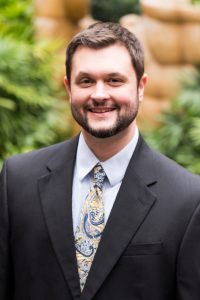Andrew Selepak Comments on the Effect Politics Can Have on Families and Employees
Andrew Selepak, University of Florida College of Journalism and Communications director of the online Master’s program in social media, was quoted in “Political News is Bad for People, Specifically Parents” published on Fatherly.com on Oct. 25.
The article looks at the possible impact of watching too much news and the effect that it can have on children and parents.

“Perhaps the biggest problem with the 24-hour news cycle is that few stories are given the depth of coverage needed for the audience to understand the significance of an event, the background behind the story, how the story fits into a historical context, and doesn’t provide an objective and balanced view of the different perspectives behind the story,” said Selepak. “While it seems counterintuitive, in our current 24-hour news cycle of cable networks and social media news, we now know less about what is going on in the world than ever before.”
Selepak was also quoted in “The Case For, and Against, Talking Politics at Work” published on REWIRE.org on Oct. 19. According to Selepak, it’s better to be blissfully ignorant about your coworkers’ beliefs than to risk hurting important relationships and the company at large.
“There is almost zero reason to engage in a political discussion at work because there is little chance that it will end in a way that will satisfy either person, and more than likely it will cause tension in the office,” he said. “On social media we can pick who we are friends with and who we follow… But we can’t pick our coworkers and we can’t just unfriend them either.”
And on Oct. 3, he commented in “If Companies Take a Political Stand, Should Employees Be Able to Do the Same” published on tribunecontentagency.com.
Selepak says that being fired isn’t the only possible job-related consequence. Companies may choose to not hire an employee for expressing political opinions that could negatively reflect on the company.
“Sadly, too many people think that freedom of speech means freedom from consequences,” he said. “You can be fired for what you say. You can also be fired simply for using social media at work.”
Posted: November 12, 2018
Category: Alumni Profiles, College News
Tagged as: Andrew Selepak


